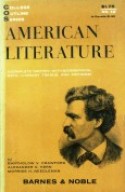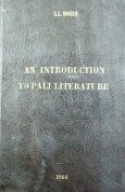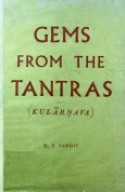Tìm Sách
Sách tiếng Anh-English >> American Literature
Thông tin tra cứu
- Tên sách : American Literature
- Tác giả : Bartholow V. Crawford
- Dịch giả :
- Ngôn ngữ : Anh
- Số trang : 315
- Nhà xuất bản : Barnes & Noble - London
- Năm xuất bản : 1953
- Phân loại : Sách tiếng Anh-English
- MCB : 12010000006697
- OPAC :
- Tóm tắt :
American Literature
ABOUT THE AUTHORS
Bartholow V. Crawford received his B.A. degree from Cornell College, Iowa and his M.A. and Ph.D. degrees from Harvard University. He has taught at the University of Minnesota and at Rice Institute. In 1921 he joined the faculty of the University of Iowa, where he is now Processor of English. He is the author of Henry David Thoreau: Representative Selections.
Alexander C. Kern received his B.A. degree from Yale University and his M.A. and Ph.D degrees from the University of Wisconsin. He has taught at the University of Wisconsin, Allegheny College, the University of Maryland, and the University of Iowa, where he is now Associate Professor of English.
Morriss H. Needleman has many years of teaching experience and has received his B.A. degree and M.S. degree in Education. He is the coauthor of another Outline in the College Outline Series: An Outline-History of English Literature.
PUBLISHER’S FOREWORD
The outline-history of American Literature covers the field, we believe, with an eclectic adequacy not attempted by any other manual. All three authors read in manuscript the work of each of their colleagues, weighed the criticisms made, and finally rewrote any part or parts that needed freshness of point of view, better balance, and richer interpretation.
As the result of several such years of intensive collaboration, the authors have achieved their common purpose of helping the student appreciate better the ideas and the ideals of American literature.
In the opinion of the editor, Bartholow V. Crawford, Alexander c. Kern, and Morriss H. Needleman have succeeded in:
- Placing emphasis upon those authors most frequently anthologized, because it will be those about whom the student will seek specific aid. In addition, a large body of significant minor authors who too frequently have been neglected is also treated, on the belief that a knowledge of less well-known writings may be necessary to bring into focus the whole complex literary picture.
- Devising a book that lends itself to immediate use for further study. Such editorial aids as cross-references and footnotes have been utilized at strategic points so as to reduce to a minimum the necessity of directing students to other books. It is not difficult, when advisable, to disregard the footnotes; yet the footnotes themselves, while stimulating the student’s interest in specific literary problems, are a concise, up-to-date bibliography ready to serve as a point of departure for supplementary readings and explorations.
- Presenting material that in each case grows out of both the nature of the subject and the needs of the student. To avoid narrowness of subject matter, the authors present a large body of desirable omnibus material.
- Bringing the treatment of the subject abreast of modern research and criticism. This has involved considerable effort and expense, since additions have had to be made several times while the work was in page proof. But both the editor and the authors have felt that every effort must be made to issue a work distinguished by significant immediacy, quick serviceability, and sound scholarship.
- Designing an outline-history of American Literature in a fashion permitting adjustment to the needs of all students, both those who purpose to go no further than the first course and those who plan to go beyond. Those who wish some minimal signposts may give heed to the works marked by an obelisk (t); those who wish to enrich the minimal requirements may make the reference notes the basis of additional work; and, finally, those who plan to do graduate work may follow up for themselves the various problems raised throughout the outline.
- Relating the literature to life, vitalizing ideas and ideals, and integrating broad intellectual and philosophical connections. The textbook itself should avoid undue stress on material apparently intended to yield entertainment suitable for adolescents rather than to provoke thinking on an adult level. Indiscriminate mastery of the material in the outline-history, American Literature, is not the desideratum. The student is not to work for the memorization of biographical facts, dates of literary works, or even critical judgments, except in a naturally subordinate degree. If a choice is offered, the student, as did the three authors, should favor intellectually stimulating ideas rather than factual matter barren of ideas. Not only is literature related to life: literature is life itself.
Moreover, while designed primarily for the college undergraduate and the majoring or even the graduate student, it is felt that the outline-history of American Literature is useful as well for all who do not have access to adequately equipped libraries or who may find it convenient to have in succinct form a representative discussion of American literature.
The publisher will be glad to receive the reader’s criticisms and suggestions for revisions to be incorporated in future editions of the text.
The Editor
PREFACE
Objectives sought by the authors of the outline-history of American Literature have been several. They have endeavored to provide for the undergraduate a compact and clearly outlined manual which will put at his disposal accurate information with which he may fill out lecture notes and prepare for tests. For the more advanced student they have tried to make clear through chronological arrangement and outline treatment the trend and sweep of development, and juxtaposition of authors and works in a variety of literary fields and against a background of historical events. Through critical judgments, time-tested rather than personal, they have suggested the estimate of less familiar works, while, at the same time, where considered judgment is at variance, summarizing critical judgments pro and con. To the teacher and the professional scholar they have made available extensive current bibliographies.
In the preparation of the outline-history of American Literature there has, of course, been free consultation among the authors. Responsibility for Chapters I-IV (except for the article on Herman Melville, which was contributed by M. H. Needleman), has, however, fallen to Alexander C. Kern; for Chapters V-VIII, to Bartholow V. Crawford; and for Chapters IX-XIV (except for the article on Henry James, which was contributed by B. V. Crawford), to Morriss H. Needleman, who has also undertaken extensive editorial tasks.
B. V. C
A. C. K.
M. H. N.
TABLE OF CONTENTS
Editor’s Foreword
Preface
Key to Symbols and Abbreviations
THE COLONIAL PERIOD (1607-1763)
Chapter
I Renaissance and Puritan Influences
Historical Background
General View of the Literature
Southern Writers: Captain John Smith; John and Ann Cotton
The Puritans
Description, Annals, and History of New England: William Bradford;
Thomas Morton; John Winthrop; Mary Rowlandson
Seventeenth Century Theologians: Thomas Shepard; Roger
Williams; John Davenport
The Mather Dynasty: Richard Mather; Increase Mather;
Cotton Mather
Miscellaneous Prose: Thomas Brattle; Robert Calef;
Nathaniel Ward; Samuel Sewall
Puritan Poetry: Ann Bradstreet; Michael Wigglesworth;
Edward Taylor
Supplementary List of Authors
II The Rise of Rationalism and Democracy
Historical Background
General View of the Literature
Religious Writing in New England: John Wise; Jonathan
Edwards; Charles Chauncey
History and Annals in New England: Sarah Kemble Knight
The Southern Colonies: Alexander Spotswood;
William Byrd of Westover
The Middle Colonies: Thomas Godfrey
Journalism in the Colonies
Supplementary List of Authors
THE REVOLUNTIONARY PERIOD (1763-1810)
III The Struggle for Independence: Deism, National Issues,
and the Beginnings of Belles Lettres
Historical Background
General View of the Literature
Washington; John Adams; John Marshall
Prose of the Enlightenment: John Woolman; William Bartram;
Alexandre Wilson; Meriwether Lewis; Hector St., John de Crèvecoeur;
Benjamin Franklin; James Otis; Patrick Henry; John Dickinson;
Samuel Adams; Francis Hopkinson; Thomas Paine; William Smith;
Thomas Jefferson; Alexander Hamilton; James Madison;
George Washington; John Adams; John Marshall
Poetry: Nathaniel Evans; Philip Freneau; John Trumbull;
Timothy Dwight; Joel Barlow
Drama: Royall Tyler
The Novel: William Hill Brown; Charles Brockden Brown;
Hugh Henry Brackenridge
Miscellaneous Prose: Noah Webster; Joseph Dennie
Supplementary List of Authors
THE ROMANTIC PERIOD (1810-1865)
IV Early Sentiment and Romance
Historical Background
General View of the Literature
Hayne
Novelists: James Fenimore Cooper; Herman Melville; Richard Henry Dana, Jr.; John Pendleton Kennedy;
William Gilmore Simms
Dramatists: George Henry Boker
The West
American Humor: Josh Billings; Artemus Ward
Historians: William Hickling Prescott; John Lothrop Motley;
Francis Parkman
Other Writing: Dorothea Dix; Elihu Burritt; John Neal;
Charles Fenno Hoffman; John Godfrey Saxe; Henry Charles Carey;
William Wirt; James Kent; Washington Allston
Supplementary List of Authors
V Transcendentalism: Its Major and Minor Figures
Origin of Concept
Group Activitie
Major Figures: William Ellery Channing (1780-1842); Ralph Waldo Emerson; Henry David Thoreau; Bronson Alcott; Margaret Fuller
Minor Figures: Theodore Parker; Henry Hedge; Jones Very;
Christopher Pearse Cranch; William Ellery Channing (1818-1901);
Orestes Augustus Brownson; James Freeman Clarke
VI The Genteel Tradition of New England: Ite Major Figures
Henry Wadsworth Longfellow; John Greenleaf Whittier; Nathaniel Hawthorne;
Oliver Wendell Holmes; James Russell Lowell
VII Walt Whitman: Prophet of Democracy
VIII Mid-Century Minor Figures: Romancers, Essayists, Poet
Harriet Beecher Stowe; James T. Fields; George William; Curtis;
Bayard Taylor; Louisa May Alcott; Thomas Bailey Aldrich;
Elizabeth Stuart Phelps
THE TRIUMPH OF REALISM: 1865-1914
IX The Local-Colorists
Historical Background
General View of the Literature
The West: Bret Harte; Edward Eggleston; John Hay;
Joaquin Miller; Other Local-Colorists
The South: Joel Chandler Harris; Lafcadio Hearn; George W. Cable;
James Lane Allen; Other Local-Colorists
New England: Sarah Orne Jewett; Mary E. Wilkins Freeman;
Other Local-Colorists
X The Gilded Age: Conservatism and Iconoclasm
Mark Twain; William Dean Howells; Henry James;
Hamlin Garland; Stephen Crane
Reformers, Historians, and Philosophers
XI Democracy and the Common Man: Novelists and Short-Story Writers
Ambrose Bierce; Edward Bellamy; Francis Marion Crawford; H. G Bunner
Other Novelists and Short-Story Writers
XII Convention and Revolt in Poetry
Emily Dickinson; Sidney Lanier; Edward Rowland Sill; John B. Tabb;
Bliss Carman; Richard Hovey; William Vaughn Moody
Other Lyrists
XIII Nationalism and Cosmopolitanism: Essayists, Critics, and Playwrights
John Burroughs; Henry Adams; Gamaliel Bradford
Other Essayists and Critics
Playwrights
YESTERDAY AND TODAY
XIV Representative Authors
Historical Background
General View of the Literature
Short-Story Writers and Novelists
Poets
Important Playwrights
Essayists, Critics, Educators, and Philosophers
Appendix : Supplementary Bibliographies
Index
 Facebook
Facebook
 Google
Google
 Google+
Google+


















